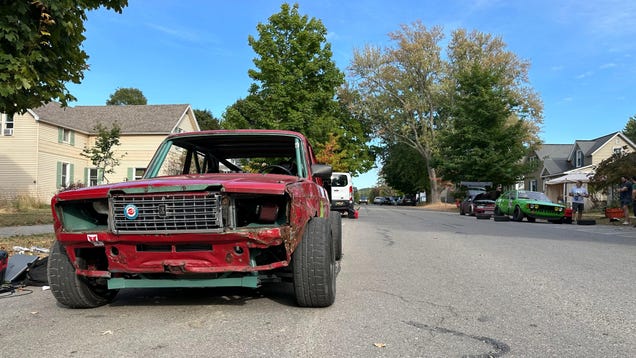Understanding the Challenges of Race Day Preparation
Race day is often a whirlwind of excitement and anxiety, especially when it involves piloting a vehicle that is unfamiliar. The experience described by Peter, who faced the daunting task of driving a car that had never been tested, highlights the intense pressure and unpredictability that can accompany motorsport events. This article delves into the intricacies of race day preparation, exploring the challenges drivers face and the strategies they can employ to navigate these hurdles effectively.
Navigating Sleep Deprivation Before a Race
One of the most significant challenges Peter faced was sleep deprivation. With only a few hours of sleep leading up to race day, the impact on cognitive function and reaction times can be profound. Research indicates that sleep deprivation can impair decision-making abilities, increase the likelihood of errors, and diminish overall performance. For drivers, this can translate into slower reaction times and an increased risk of accidents on the track.
To combat the effects of sleep deprivation, it is crucial for drivers to prioritize rest in the days leading up to the race. Implementing a structured sleep schedule, utilizing power naps, and practicing relaxation techniques can help mitigate the adverse effects of lack of sleep. Additionally, staying hydrated and maintaining a balanced diet can support cognitive function and physical endurance during the race.
The Importance of Pre-Race Vehicle Testing
Peter’s experience underscores another critical aspect of race day preparation: vehicle testing. The call to pull the engine at 2 AM on race day signifies a last-minute decision that can have significant implications for performance. A vehicle that has not been tested poses risks not only to the driver but also to the team and other competitors on the track.
Pre-race testing is essential for several reasons. It allows drivers to familiarize themselves with the vehicle’s handling, braking, and acceleration characteristics. Moreover, it provides an opportunity to identify and rectify any mechanical issues before they escalate during the race. Teams should prioritize thorough testing sessions, ensuring that the vehicle is in optimal condition and that the driver feels confident behind the wheel.
Strategies for Managing Race Day Anxiety
The pressure of race day can lead to heightened anxiety, particularly for drivers facing new challenges. Peter’s narrative reflects the mental strain that comes with racing, especially when navigating an unfamiliar course. Managing anxiety is crucial for maintaining focus and performance.
Mindfulness techniques, such as deep breathing exercises and visualization, can help drivers center themselves before the race. Engaging in positive self-talk and setting realistic goals can also alleviate anxiety. Additionally, building a strong support system within the racing team can provide emotional reassurance and enhance overall morale.
Learning from Experience: The Role of Team Communication
Effective communication within the racing team is vital for success on race day. Peter’s mention of discussions about Steve indicates the importance of collaboration and shared knowledge among team members. Clear communication can help ensure that everyone is on the same page regarding vehicle performance, strategy, and any last-minute adjustments.
Teams should establish protocols for communication during the race, including signals for pit stops, adjustments, and emergency situations. Regular debriefs after practice sessions and races can also foster a culture of continuous improvement, allowing team members to learn from each experience and refine their strategies.
Embracing the Unexpected: Adapting to Race Day Challenges
Finally, the unpredictability of race day is an inherent part of motorsport. Peter’s situation illustrates that despite meticulous planning, unforeseen challenges can arise. The ability to adapt and remain flexible is crucial for drivers and teams alike.
Developing contingency plans for various scenarios can help teams respond effectively to unexpected events. Whether it’s a sudden change in weather conditions or mechanical issues, having a proactive mindset can make a significant difference in performance outcomes.
In summary, race day preparation is a multifaceted endeavor that requires careful consideration of sleep, vehicle testing, anxiety management, team communication, and adaptability. By addressing these challenges head-on, drivers can enhance their performance and navigate the complexities of racing with confidence.

